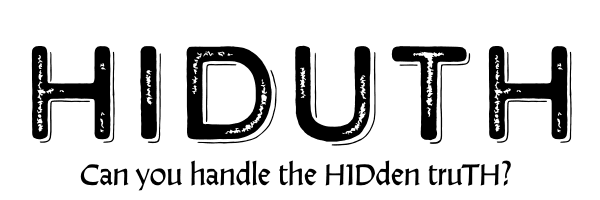There’s something behind that – Never before has information been so easily accessible. Yet conspiracy theorists only believe in their own truths. Politics could confront it by allowing alternatives.In Claus Petersen’s world, airplanes spray a deadly chemical over Germany, which is a tributary vassal country of the USA; its constitution drawn up in the villa of the Rothschilds, and the number of victims in the Holocaust, says Mr. Petersen, is significantly less than is generally assumed. For technical reasons.
Mr. Petersen, almost 70 years old, with an accent from the north, has become involved with a group called the “Reich citizens” who dispute the legal existence of the Federal Republic of Germany.
He doesn’t seem to have a problem with anti-Semitic theses.
But above all, he is a stubborn activist in Germany’s chemtrail scene. He co-founded the group “Blue Sky Berlin,” and once a month in a pizzeria, he reserves a table for all those who are convinced that humanity will be poisoned by barium salts, strontium and aluminum. Chemtrailers believe that that ever since the late 1990s, airplanes have been discharging a poisonous condensation that is slowing down climate change and allows the American intelligence services, by sprinkling minuscule aluminum particles, monitor even hidden parts of the world.
Mr. Petersen comes to a first meeting in front of a Berlin snack bar with a folder crammed with his research: dozens of photos of the sky above Berlin, pictures showing Chancellor Angela Merkel alongside gas containers as high as her hip, a text by a woman who, under the name “Barbie Sioux Cherokee Sparrow Hawk,” posts esoteric bits of wisdom on the Internet. These are Mr. Petersen’s pieces of evidence.
What is interesting is that Mr. Peterson receives much confirmation for his view of the world. The chemtrail movement long ago became a global network with its own forums, channels and experts. Basically it is a sect, only that there is no central organization which controls it and whose contradictions could be exposed. Persons like Mr. Petersen contribute actively to this conspiracy narrative; they write commentaries and articles, share videos, organize meetings and initiate petitions to the German legislature.

Never before has so much information been available, and never before could so many people state freely what they believe to be true. Everyone can construct their own reality that can shake up the power structure. This is actually good news, because it is dangerous for dictators and despots. But on the other hand, never before has it been so difficult to attain a clear picture out of the flood of contradictory information. Anyone can find confirmation for their own truth and perspective. Rumors and conspiracy theories spread rampantly. We are experiencing an unleashing of thought fueled by conviction, a new kind of culture war.
In 1632, Galileo Galilei published a dialogue in which he asserted the thesis that, in contradiction of the dominant dogma of the church, the earth revolves around the sun. Because that didn’t fit into the orthodox world view, Galileo had to renounce his thesis in front of the Inquisition. Today, in an open, pluralistic society, the “system” doesn’t stage Inquisitions anymore; instead it is attacked with the methods of the Inquisition. Everything can be true, but so can its opposite.
Is this a counter-Enlightenment, is the entire notion of education being swept away by enthusiasts, sectarians and dissidents? Is distrust of the state coming to the fore in this culture war and fueling such angry movements as the far-rightist Pegida party in Germany? Or is this pure Enlightenment where church, state, parties, media and traditional authorities can no longer crack down on dissent, where everything is subject to doubt and no one is right simply by virtue of the office he holds?
Thomas Weimer works in the Bundestag, Germany’s lower legislative chamber, at the press office of one of the political parties. His real name and his party are irrelevant here, because what he perceives is experienced by colleagues in the press offices of all the parties. One of Thomas Weimer’s tasks is to prepare the so-called morning situation: every day, he gathers the most important headlines and commentaries for discussion by the heads of the party. Mr. Weimer reads the major daily newspapers, clicks through news pages on the Internet, and takes a look at blogs. Sometimes he turns on the television too.
Mr. Weimer says that thanks to his work he has a pretty good view of traditional media. What he often sees is uniformity instead of plurality, simplicity instead of diversity. Thomas Weimer is not a conspiracy theorist; he doesn’t believe that “the media” are all controlled by the CIA or the German chancellery. But he observes something that conspiracy theorists also criticize in the media: the fact that many journalists are often convinced of their opinion even if the facts are uncertain. That opinions against the mainstream seldom if ever appear. And that many editorial staffs find it extremely difficult to acknowledge to themselves — and to their readers — when they have made a mistake.
Earlier on, people in Germany mistrusted one particular medium, namely the sensationalist “Bild” tabloid. Nowadays though, that mistrust has spread across the entire media landscape.
Scarcely any other publisher in Germany has profited more from this mistrust than the tiny Kopp Verlag in Rottenburg am Neckar in Swabia. Founded in 1993 by Jochen Kopp, a former policeman, the publishing enterprise says that it now has 60 employees. It sells its works primarily through its own mail-order business.




